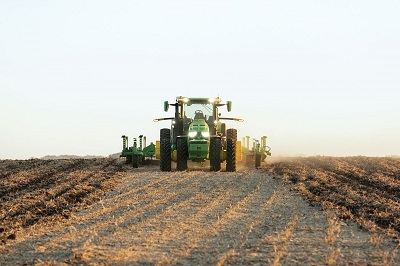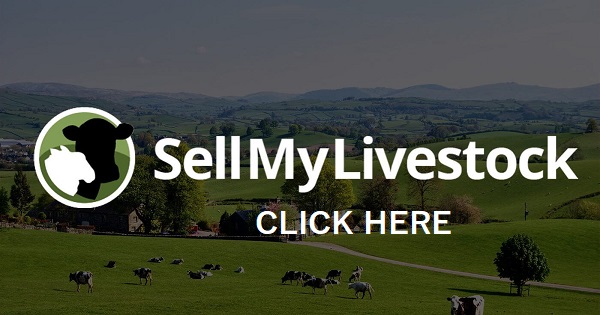How to Apply for a Farming Grant in South Africa
To apply for a farming grant in South Africa, you’ll typically need to follow these general steps:
- Research Grant Opportunities: Begin by researching the various grants available for farmers in South Africa. These grants may be offered by government agencies, non-profit organizations, or private foundations. Look for grants that align with your specific farming activities or goals.
- Check Eligibility Criteria: Once you’ve identified potential grant opportunities, carefully review the eligibility criteria for each grant. Make sure you meet all the requirements before proceeding with the application.
- Prepare Required Documents: Gather all the necessary documents required for the application process. These may include proof of identity, land ownership or lease agreements, business plans, financial statements, and any other relevant paperwork specified by the grant provider.
- Complete the Application Form: Fill out the application form accurately and completely. Pay close attention to instructions and provide all requested information. Be honest and transparent in your responses.
What Forms do you need to Apply for a Farming Grant
The forms you’ll need to apply for a farming grant in South Africa can vary depending on the specific grant program and provider. However, some common forms and documents that may be required include:
- Application Form: This is the primary form you’ll need to fill out to apply for the grant. It typically includes sections where you provide information about yourself, your farming operation, your business plan, and how you plan to use the grant funds.
- Proof of Identity: You may need to provide proof of identity, such as a copy of your ID document or passport.
- Land Ownership or Lease Agreements: If you own the land you farm on, you may need to provide proof of ownership. If you lease the land, you’ll likely need to provide a copy of your lease agreement.
- Business Plan: Many grant applications require you to submit a detailed business plan outlining your farming activities, goals, marketing strategies, and financial projections.
- Financial Statements: You may need to provide financial statements, including income statements, balance sheets, and cash flow projections, to demonstrate the financial viability of your farming operation.
- Bank Statements: Some grant programs may require recent bank statements to verify your financial status.
- Tax Clearance Certificate: You may need to provide a tax clearance certificate to demonstrate that you are compliant with tax obligations.
- Certifications or Licenses: Depending on the nature of your farming operation, you may need to provide copies of relevant certifications or licenses, such as organic certification or permits for certain activities.
- References or Recommendations: Some grant applications may require letters of recommendation or references from agricultural experts, mentors, or other relevant individuals or organizations.
- Other Supporting Documents: Depending on the specific requirements of the grant program, you may need to provide additional supporting documents, such as crop production records, livestock inventories, environmental impact assessments, or marketing plans.
Before starting your application, carefully review the application guidelines provided by the grant provider to ensure that you have all the necessary forms and documents. If you’re unsure about any requirements, don’t hesitate to reach out to the grant provider for clarification.

How to get an application form
To find an application form for a farming grant in South Africa, you can follow these steps:
- Government Websites: Check the websites of government departments or agencies responsible for agriculture, rural development, or economic development. These departments often administer grant programs for farmers. Look for sections related to grants, funding opportunities, or agricultural support programs.
- Agricultural Organizations: Explore websites of agricultural organizations, farmer associations, or agricultural cooperatives. These organizations sometimes provide information about grant opportunities and may offer application forms or guidance on how to apply.
- Online Searches: Use search engines to look for specific grant programs or funding opportunities for farmers in South Africa. Include keywords such as “farming grants South Africa” or “agricultural funding programs” in your search query. Review the search results to find relevant websites or online portals where application forms may be available for download.
- Government Offices: Contact local or regional offices of government departments responsible for agriculture or rural development. They may provide application forms in person or direct you to online resources where forms can be accessed.
- Agricultural Events or Workshops: Attend agricultural events, workshops, or seminars where representatives from government agencies or agricultural organizations may distribute information about grant programs and provide application forms.
- Social Media and Newsletters: Follow government departments, agricultural organizations, and relevant stakeholders on social media platforms or subscribe to their newsletters. They often share updates about grant programs and may provide links to application forms or online application portals.
- Networking: Reach out to other farmers, agricultural advisors, or industry contacts who may have knowledge about available grant programs and application procedures. They may be able to provide insights or direct you to resources where application forms can be found.
- Official Publications: Check official publications such as government gazettes, agricultural newsletters, or industry publications for announcements or notices about grant opportunities. These publications may include instructions on how to access application forms or apply for funding.
When you find the application form, carefully review the instructions and requirements before completing and submitting it. If you have any questions or need assistance, don’t hesitate to contact the grant provider for guidance.
Also see Business Plan
Setting up your Financial Statements
To prepare financial statements for a farming grant application, you’ll typically need to include several key components that provide an overview of your farm’s financial health and performance. Here are the main financial statements you may need to prepare:
- Income Statement (Profit and Loss Statement):
- The income statement provides a summary of your farm’s revenues, expenses, and net income over a specific period, usually a fiscal year.
- Revenue: Include all sources of income generated by your farm, such as sales of crops, livestock, and other products.
- Expenses: List all expenses incurred in running your farm, including operating expenses (e.g., seed, feed, fertilizers, pesticides), labor costs, equipment maintenance, utilities, insurance, taxes, and administrative expenses.
- Net Income: Calculate the difference between total revenue and total expenses to determine your farm’s net income or net loss.
- Balance Sheet:
- The balance sheet provides a snapshot of your farm’s financial position at a specific point in time, typically the end of the fiscal year.
- Assets: List all the assets owned by your farm, including land, buildings, machinery, equipment, livestock, inventory (e.g., crops, feed), and accounts receivable.
- Liabilities: Include all debts and obligations of your farm, such as loans, mortgages, accounts payable, and accrued expenses.
- Equity: Calculate the difference between total assets and total liabilities to determine your farm’s equity or net worth.
- Cash Flow Statement:
- The cash flow statement shows how cash flows in and out of your farm during a specific period, typically a fiscal year.
- Operating Activities: Include cash inflows and outflows from day-to-day farming operations, such as sales revenue, operating expenses, and changes in inventory and accounts receivable.
- Investing Activities: Record cash flows related to the purchase or sale of assets, such as land, machinery, equipment, and investments.
- Financing Activities: Document cash inflows and outflows from financing activities, such as loans, equity investments, and repayment of debt.
How to get a Tax Clearance Certificate
A Tax Clearance Certificate is a document issued by the South African Revenue Service (SARS) that confirms an individual or entity’s tax compliance status. It serves as proof that the holder has no outstanding tax liabilities or debts with SARS up to a certain date.

To obtain a Tax Clearance Certificate for a farming grant application in South Africa, you’ll typically need to follow these steps:
- Register for Tax: Ensure that you and your farming operation are registered for tax with SARS. This may involve obtaining a tax reference number and registering as a taxpayer.
- File Tax Returns: Make sure that all required tax returns for your farming business are up to date and submitted to SARS. This includes income tax returns, value-added tax (VAT) returns (if applicable), and any other relevant tax filings.
- Settle Outstanding Tax Obligations: If you have any outstanding tax liabilities or debts with SARS, settle them promptly. This may involve paying overdue taxes, penalties, or interest charges.
- Apply for Tax Clearance Certificate: Once your tax affairs are in order, you can apply for a Tax Clearance Certificate from SARS. This can typically be done online through the SARS eFiling system or at a SARS branch office.
- Provide Required Information: When applying for the Tax Clearance Certificate, you may need to provide certain information, such as your tax reference number, business details, and financial information.
- Wait for Processing: SARS will review your application and verify your tax compliance status. The processing time may vary depending on the volume of applications and other factors.
- Receive Tax Clearance Certificate: If your application is successful and SARS confirms that you are tax compliant, you will be issued a Tax Clearance Certificate. This certificate will indicate that you have no outstanding tax liabilities with SARS up to the specified date.
- Submit Certificate with Grant Application: Once you receive the Tax Clearance Certificate, include it as part of your farming grant application. It serves as proof of your tax compliance status and may be required by the grant provider as part of the application process.
It’s important to ensure that your tax affairs are kept up to date and that you maintain tax compliance throughout the farming grant application process. Failure to do so could result in delays or disqualification from grant eligibility. If you have any questions or need assistance with tax matters, consider consulting with a tax professional or contacting SARS for guidance.
The Purpose of a Grant
The purpose of a grant is to provide financial assistance or support to individuals, organizations, or businesses to achieve specific goals or objectives. Grants are typically awarded by governments, foundations, non-profit organizations, or other funding bodies, and they serve various purposes depending on the priorities and objectives of the grant provider. Some common purposes of grants include:
- Supporting Research and Innovation: Grants may be awarded to researchers, scientists, and innovators to conduct studies, experiments, or projects that advance knowledge, develop new technologies, or address important societal challenges.
- Promoting Education and Training: Grants may fund educational programs, scholarships, or training initiatives to help individuals acquire new skills, improve their qualifications, or access learning opportunities.
- Addressing Social Issues: Grants may be targeted towards addressing social problems such as poverty, homelessness, hunger, healthcare disparities, or environmental degradation. Funding may support programs, services, or initiatives aimed at improving the well-being of communities or marginalized groups.
- Stimulating Economic Development: Grants may support economic development initiatives such as small business development, entrepreneurship programs, job creation projects, or infrastructure improvements. Funding may be used to stimulate economic growth, attract investment, or revitalize local economies.
- Preserving Cultural Heritage: Grants may fund projects or activities aimed at preserving and promoting cultural heritage, traditions, languages, or artistic expressions. Funding may support museums, cultural institutions, preservation efforts, or community-based cultural initiatives.
- Conserving Natural Resources: Grants may support conservation efforts aimed at protecting biodiversity, preserving ecosystems, mitigating climate change impacts, or promoting sustainable land use and resource management practices.
- Encouraging Community Development: Grants may empower communities to address their own needs, priorities, and aspirations. Funding may support community-based organizations, grassroots initiatives, or participatory development projects.
- Fostering Collaboration and Partnerships: Grants may encourage collaboration and partnerships between different stakeholders, including government agencies, non-profit organizations, academic institutions, businesses, and communities. Funding may support joint projects, networks, or consortia aimed at achieving common goals.
The purpose of a grant is to allocate resources strategically to achieve desired outcomes, address pressing challenges, and create positive impacts on individuals, communities, and society as a whole. Grants play a vital role in supporting innovation, social progress, and sustainable development across various sectors and contexts.
Land Redistribution for Agricultural Development (LRAD) is a program designed to empower previously disadvantaged individuals by providing grants to acquire land for agricultural purposes. Eligible applicants interested in farming can apply for an LRAD grant, with a requirement to contribute a minimum of R5,000 either in cash or through labor, proportional to the grant amount. Grants range from a minimum of R20,000 to a maximum of R100,000.
Both individuals and groups are eligible to apply for LRAD grants. In instances where groups are already utilizing communal land under local authority ownership, they can seek additional land through the program. Particularly encouraged to apply are women, youth, and individuals with disabilities.
For further inquiries or applications regarding Agricultural Development, please contact: 012 319 8495 For inquiries regarding Land Acquisition, please contact: 012 312 9600
Integrated Food Security and Nutrition Programme (IFSNP) is an inter-governmental initiative aimed at providing relief to households affected by food insecurity. The program offers agricultural assistance in the form of seedlings, equipment, fertilizers, and more, with the goal of empowering beneficiaries to produce their own food. Both groups and individuals interested in starting small-scale gardens or subsistence farming in rural or urban areas are eligible to apply.
For inquiries or applications related to the Department of Agriculture, please contact: 012 319 7331
Irrigation, Revitalization, and Development focuses on efficient water management practices to maximize agricultural productivity, particularly in areas with limited water resources. Small-scale irrigation projects play a vital role in enhancing food security and reducing poverty. The program supports the revitalization of under-utilized irrigation schemes and the development of new schemes in water-abundant regions to benefit rural communities.
For inquiries or applications regarding irrigation projects, please contact the Department of Agriculture: 012 846 8569
The Comprehensive Agricultural Support Programme (CASP) offers support services to previously disadvantaged landowners to enhance their farming capabilities. CASP focuses on six priority areas, including information management, technical assistance, marketing, training, infrastructure development, and financial support.
For inquiries or applications regarding CASP, please contact the Department of Agriculture: 012 319 8495/7686/8244
Micro-Agricultural Financial Institutions of South Africa (Mafisa) aims to assist emerging farmers in accessing financial services such as loans, savings, credit, and insurance. Mafisa provides loans of up to R100,000 to individuals who demonstrate the ability to repay, supported by a detailed business plan.
For inquiries or applications related to Mafisa, please contact the Department of Agriculture: 012 319 7295/7917
For more information or contact www.gov.za
Landbank is here to assist you with your Grant.
The Agricultural Youth Fund represents a groundbreaking financial initiative forged through a partnership between Land Bank and the NYDA (National Youth Development Agency). The primary objective of this initiative is to furnish eligible youth-led farming enterprises with financial backing to propel their business endeavors forward. Initially, the focus is on specific commodities chosen for their growth potential within the sector, substantial production value, labor-intensive nature conducive to employment generation, and alignment with Land Bank’s credit criteria.
As the program evolves, additional commodities will be incorporated. The inaugural selection of commodities includes high-value vegetables such as baby marrow, patty pans, chillies, and baby spinach, along with piquanté peppers and paprika.
The fund’s initial capitalization stands at R50 million, equally contributed by both organizations. Land Bank’s contribution will constitute the debt portion, while the NYDA’s contribution will form the grant portion. This collaborative effort between the NYDA and Land Bank aims to support youth engagement in agriculture by providing opportunities for expansion and diversification of agribusiness ventures.
For further information, including access to our product brochure and application form, please refer to the links provided below. All applications must be submitted at any of the NYDA offices outlined in the brochure.
YouTube Channel: Farming South Africa
Facebook Page: Farming Life
Back To Home Page: Farming South Africa

